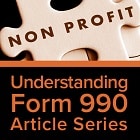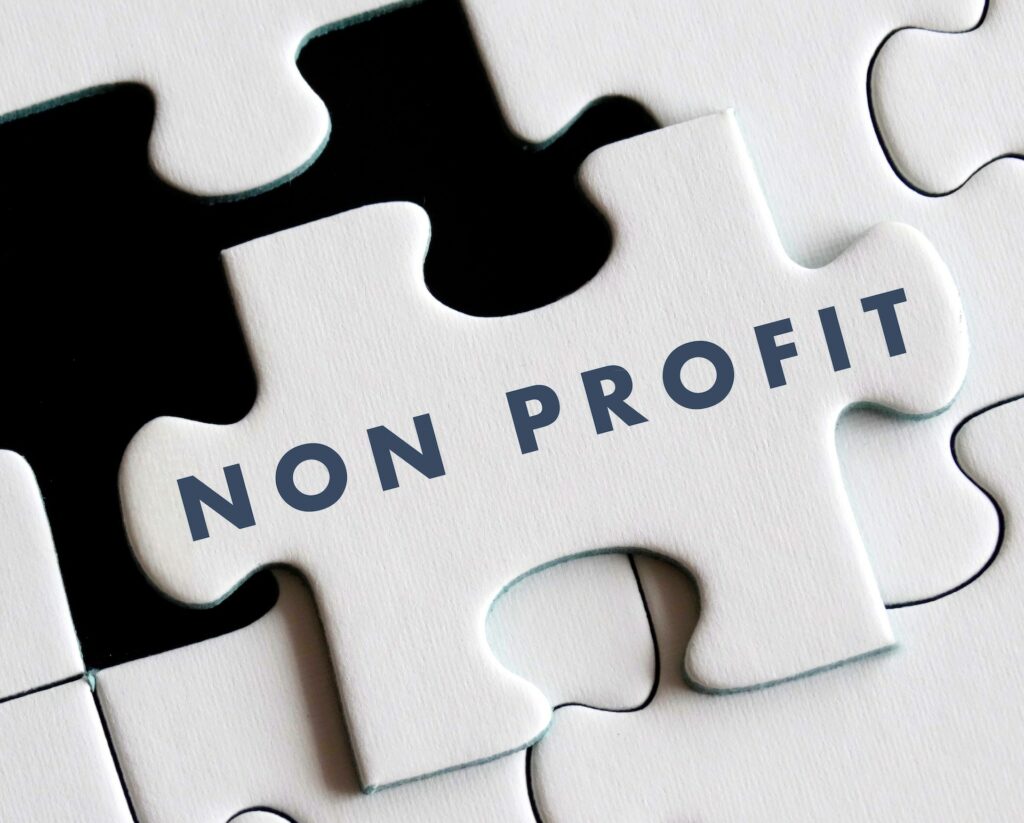 Schedule C of Form 990 reports information about the not-for-profit organization (NPO)’s political campaign and lobbying activities. This article will discuss the following:
Schedule C of Form 990 reports information about the not-for-profit organization (NPO)’s political campaign and lobbying activities. This article will discuss the following:
- When to attach Schedule C to Form 990
- A general discussion on political campaign and lobbying activities and what is allowable for certain types of NPOs
- A discussion of the 501(h) election that may be available to a NPO to provide safe harbors for lobbying activities
When Does a NPO Need to Attach Schedule C to its Form 990?
Schedule C is required to be attached to Form 990 when:
- The NPO engaged in direct or indirect political campaign activities on behalf of or in opposition to candidates for public office;
- If the NPO is a 501(c)(3) and the NPO engaged in lobbying activities or has a 501(h) election in effect during the tax year covered by Form 990; or
- If the NPO is a 501(c)(4), 501(c)(5), or 501(c)(6) that receives membership dues, assessments, or similar amounts.
Form 990 defines political campaign activities as “All activities that support or oppose candidates for elective federal, state, or local public office. It does not matter whether the candidate is elected. A candidate is one who offers himself or is proposed by others for public office. Political campaign activity does not include any activity to encourage participation in the electoral process, such as voter registration or voter education, provided that the activity does not directly or indirectly support or oppose any candidate.” Form 990 defines lobbying activities as “All activities intended to influence foreign, national, state, or local legislation. Such activities include direct lobbying (attempting to influence the legislators) and grassroots lobbying (attempting to influence legislation by influencing the general public).”
What Political Campaign and Lobbying Activities are Allowable?
501(c)(3) Organizations (Other than Private Foundations)
501(c)(3) organizations cannot engage in any political campaign activities. Engaging in these activities will likely result in the revocation of tax exempt status and monetary penalties. Anyone acting in their capacity as a 501(c)(3) organization’s Board member, management, employee, volunteer, etc. should be aware of this prohibition. 501(c)(3) organizations should monitor use of stationery/letterhead, email domain, postings on its website, list servs, social media, newsletters, communications, websites, including links on their websites, etc. to ensure nothing meeting the definition of political campaign activities is occurring at their organization.
501(c)(3) organizations can engage in lobbying activities, subject to limitations. However, if a “substantial part” of its activities are lobbying activities, the organization will face revocation of its tax-exempt status. “Substantial part” is subjective, and would be judged by a facts and circumstances surrounding the lobbying activities. The IRS will consider time devoted by individuals related to lobbying activities (including volunteers) and expenditures related to lobbying activities to determine whether or not a “substantial part” of the organization’s activities are lobbying activities. Also, some funders such as the federal government or state governments may place prohibitions on using funds provided by them for lobbying purposes.
501(c)(3) organizations that are private foundations are subject to their own limitations and prohibitions relating to political campaign and lobbying activities. Rules and guidelines relating to political campaign and lobbying activities for private foundations will need to be explored beyond this article.
501(h) Election
While the “substantial part” test puts a NPO in an uncertain situation and how facts and circumstances will be evaluated by the IRS, there is an alternative that provides NPOs more concrete lines on permissible levels of lobbying activities.
The 501(h) election is available to 501(c)(3) organizations other than churches and private foundations. The election is made by filing IRS Form 5768 Election/Revocation of Election by an Eligible 501(c)(3) Organization to Make Expenditures To Influence Legislation (Under Section 501(h) of the Internal Revenue Code). Form 5768 can be filed and applied retroactively to the first day of the year in which it was filed. The 501(h) election is then in effect for all subsequent years unless revoked by filing a second version of the 5768. The 501(h) election provides for a fixed dollar limit to the “lobbying nontaxable amount” that is based on the NPO’s exempt purpose expenditures.
Under the 501(h) election, there are two types of lobbying expenditures that must be tracked – grassroots lobbying and direct lobbying. Grassroots lobbying is generally any attempt to influence legislation through an attempt to affect the opinions of the general public or any part of the general public. Direct lobbying generally consists of costs incurred for the purposes of attempting to influence legislation through communication with any member or employee of a legislative body or with a government official or employee that may participate in the formulation of the legislation. Generally, either grassroots or direct lobbying communications need to refer to specific piece of legislation and reflect a view on the legislation.
The following chart shows the “lobbying nontaxable amount” for direct lobbying expenditures for NPOs that made the 501(h) election:
| Total Exempt Purpose Expenditures | Related Lobbying Nontaxable Amount |
| Not over $500,000 | 20% of total exempt purpose expenditures |
| Over $500,000 but not over $1,000,000 | $100,000 + 15% of the excess over $500,000 |
| Over $1,000,0000 but not over $1,500,000 | $175,000 + 10% of the excess over $1,000,000 |
| Over $1,500,000 but not over $17,000,000 | $225,000 + 5% of the excess over $1,500,000 |
| Over $17,000,000 | $1,000,000 |
The nontaxable amount for grassroots lobbying expenditures is 25% of the amount in the above chart, and is tested separately from direct lobbying expenditures.
If a NPO exceeds the nontaxable amount of lobbying expenditures, they will need to pay excise tax by filing Form 4720 Return of Certain Excise Taxes Under Chapters 41 and 42 of the Internal Revenue Code on the amount of expenditures over the nontaxable amount at 25%.
Furthermore, if the NPO’s lobbying expenditures on average exceed 150% of the nontaxable direct lobbying or grassroots lobbying amount over a four-year period, the NPO will lose its exempt status.
501(c)(4), 501(c)(5), and 501(c)(6) Organizations
Generally, 501(c)(4), 501(c)(5), and 501(c)(6) organizations can engage in lobbying activities and are not subject to the “substantial part” test or limitations related to the 501(h) election that most 501(c)(3) organizations are subject to. 501(c)(4), 501(c)(5), and 501(c)(6) organizations generally can also engage in some political campaign activities provided they are not the NPO’s primary activity. However, federal and state laws or contract provisions may exist that might limit or prohibit both lobbying and political campaign activities.
The portion of membership dues that represents lobbying and political campaign activities is not tax-deductible by members. The organization can either notify members each year of the nondeductible amount of dues related to lobbying and political campaign activities or pay a 35% proxy tax. If an organization chooses to notify members, Schedule C, Part III-B will need to be completed, which allows the IRS to monitor whether the NPO’s notice was sufficient to cover the amount of lobbying and political campaign expenditures or not. If the notice understates the NPO’s lobbying and political campaign activities, proxy tax will still need to be paid, with certain exceptions.
If your NPO is considering or is lobbying or political campaign activities, and you have questions, please do not hesitate to call us!





